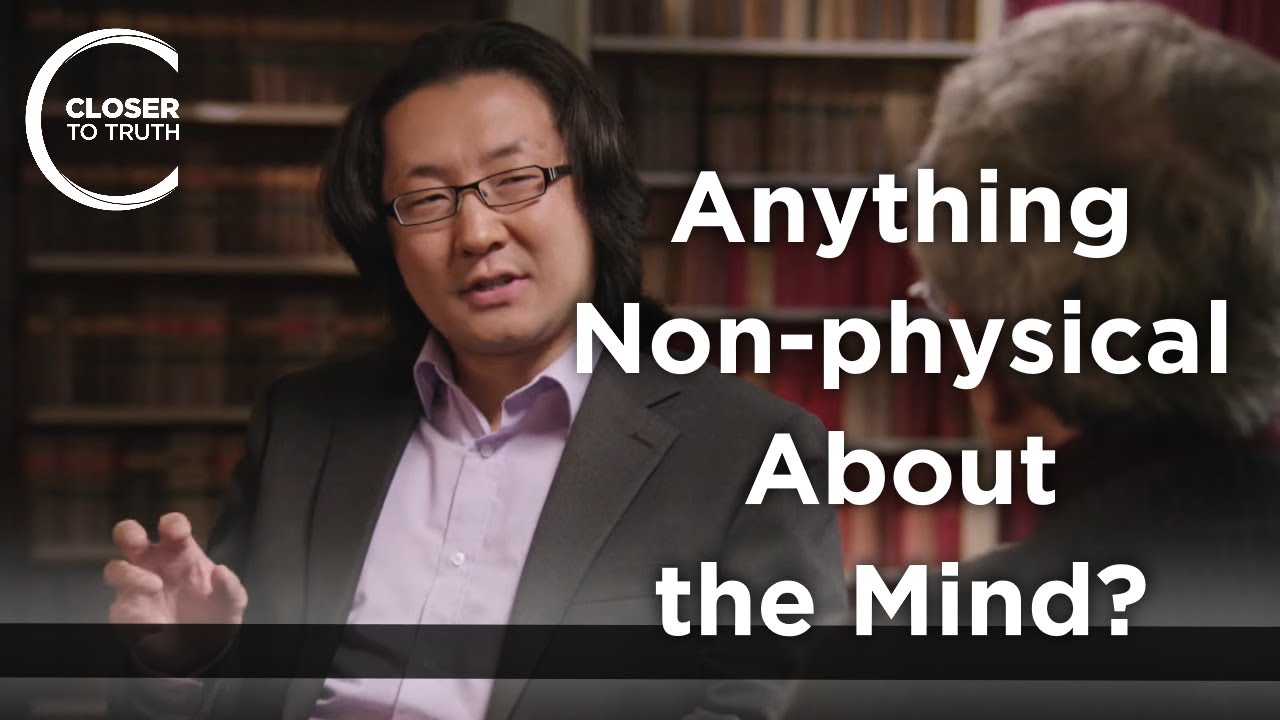Yujin Nagasawa - Anything Non-Physical About The Mind?
Unleash Your Creative Genius with MuseMind: Your AI-Powered Content Creation Copilot. Try now! 🚀
In the quest for knowledge, our journey often leads us to the fringes of what we can perceive and imagine. Eugene, a student of Neuroscience, found himself grappling with a question that has perplexed great minds throughout history: Is there anything beyond the physical world? Not in the sense of an immortal soul or a divine realm, but something non-physical that eludes our understanding. Despite his extensive work in Neuroscience, Eugene felt that he hadn't made any substantial progress in comprehending this enigma. Can we ever truly make headway in unraveling the mysteries of consciousness?
The Knowledge Argument: A Window to the Beyond
Enter the "knowledge argument," a profound concept introduced by the brilliant philosopher Frank Jackson in 1982. This argument hinges on a mesmerizing thought experiment that invites us to explore the limits of our physical world. Imagine Mary, a brilliant scientist residing in a monochromatic environment, surrounded by black and white books and a grayscale television. Mary's genius extends to acquiring complete physical knowledge. She's a master of wavelengths of light, their relation to colors, and can ace any scientific test in this domain. She knows everything there is to know about color, at least from a physical standpoint.
But here's the twist: when Mary steps out of her monochrome cocoon and experiences the vivid world of colors for the first time, she's greeted by an entirely new sensation. She encounters the radiant reds, the soothing blues, and all the shades in between. What she didn't know, despite her exhaustive physical knowledge, was what it felt like to see these colors. This knowledge is what philosophers refer to as "phenomenal knowledge" – an intimate understanding of the subjective experience, the essence of what it feels like.
Unmasking Physicalism
The beauty of this argument lies in its simplicity, built upon just two premises concerning Mary's knowledge. First, Mary possesses comprehensive knowledge of the physical world within her monochromatic environment. This premise is intuitively sound, setting the stage for the experiment. Second, upon her release into the world of color, Mary discovers something entirely new about the nature of seeing. She experiences what it's like, gaining phenomenal knowledge.
These two premises, when accepted, challenge the very core of physicalism, the belief that everything is physical. According to Jackson, the knowledge argument refutes physicalism, suggesting that there are aspects of reality that escape the clutches of the purely physical. It's a compelling argument that invites us to ponder the nature of our existence beyond the confines of the material world.
The Limits of the Knowledge Argument
While the knowledge argument may tantalize our intellectual taste buds, it's essential to approach it with a dash of skepticism. Let's revisit Mary, the star of our thought experiment. Ideally, we'd love to place her in her monochromatic environment and then ask her if she knows what it's like to see colors. But in reality, we're constrained by several factors. Mary can only acquire facts that are theoretically communicable, which means she must rely on reading books and watching TV for her knowledge. The flaw in this approach is that physicalism doesn't hinge on the assumption that everything is theoretically communicable.
Physicalism doesn't assert that every aspect of reality can be neatly packaged into scientific theories. Consider a simple, everyday object like a chair. If physicalism holds, there should be no metaphysical gap between the chair and everything else in the universe. However, scientific theories, while excellent at explaining the structure, function, and dynamics of physical objects, might not encapsulate the essence of the chair itself. There's more to the chair than meets the scientific eye.
Embracing a Different Monism
So, if the knowledge argument doesn't conclusively refute physicalism, where does that leave us? It's here that we encounter a different perspective, one that doesn't necessarily adhere to the traditional confines of physicalism. Some are drawn to a form of monism known as Russellian monism, which posits that the universe is metaphysically uniform. In this monistic universe, there's nothing beyond, and nothing is purely physical or purely mental. It's all one and the same.
Russellian monism doesn't introduce a spiritual realm or a purely mental dimension. It's the idea that the universe is metaphysically seamless. However, it doesn't demand that scientific theories encapsulate every facet of existence. The chair and consciousness, while intertwined, might remain elusive to complete scientific understanding.
Beyond Constructs and Realities
This raises an intriguing possibility – what if the elements that seem beyond the reach of science are merely human constructs, devoid of true substance in reality? These constructs are the only exceptions to the all-encompassing realm of physicalism. The physical world, the subject of rigorous scientific exploration, remains the primary domain of our understanding, while these constructs are but ephemeral creations of the human mind.
In the grand tapestry of existence, physicalism reigns supreme, and the exceptional aspects that elude complete scientific comprehension might be nothing more than the products of our intricate imagination. As we journey through the landscape of knowledge and consciousness, we must keep our minds open to the infinite possibilities, ever curious and ever hungry for the next revelation that pushes the boundaries of our understanding.
In the realm of philosophy, there's always room for a touch of uncertainty and wonder. It's what keeps the intellectual flames burning, pushing us to explore the depths of our existence and venture into the uncharted territories of consciousness. So, while the knowledge argument may not provide definitive answers, it sparks the flame of curiosity, inviting us to dance on the edges of the physical and the non-physical, where the boundaries of our understanding blur, and the adventure of knowledge continues.
